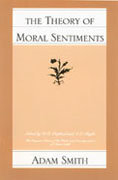I need help please and answers all the questions
A young hoodlum, say, heaves a brick through the window of a baker's shop. The shopkeeper runs out furious, but the boy is gone. A crowd gathers, and begins to stare with quiet satisfaction at the gaping hole in the window and the shattered glass over the bread and pies. After a while the crowd feels the need for philosophic reflection. And several of its members are almost certain to remind each other or the baker that, after all, the misfortune has its bright side. It will make business for some glazier. As they begin to think of this they elaborate upon it. How much does a new plate glass window cost? Fifty dollars? That will be quite a sum. After all, if windows were never broken, what would happen to the glass business? Then, of course, the thing is endless. The glazier will have $50 more to spend with other merchants, and these in turn will have $50 more to spend with still other merchants, and so ad infinitum. The smashed window will go on providing money and employment in ever-widening circles. The logical conclusion from all this would be, if the crowd drew it, that the little hoodlum who threw the brick, far from being a public menace, was a public benefactor. Now let us take another look. The crowd is at least right in its first conclusion. This little act of vandalism will in the first instance mean more business for some glazier. The glazier will be no more unhappy to learn of the incident than an undertaker to learn of a death. But the shopkeeper will be out $50 that he was planning to spend for a new suit. Because he has had to replace a window, he will have to go without the suit (or some equivalent need or luxury). Instead of having a window and $50 he now has merely a window. Or, as he was planning to buy the suit that very afternoon, instead of having both a window and a suit he must be content with the window and no suit. If we think of him as a part of the community, the community has lost a new suit that might otherwise have come into being, and is just that much poorer. The glazier's gain of business, in short, is merely the tailor's loss of business. No new "employment" has been added. The people in the crowd were thinking only of two parties to the transaction, the baker and the glazier, They had forgotten the potential third party involved, the tailor. They forgot him precisely because he will not now enter the scene. They will see the new window in the next day or two. They will never see the extra suit, precisely because it will never be made. They see only what is immediately visible to the eye. Reflect on the following questions: What is it about the townspeople's argument that makes it appealing? Does the fact that the tailor doesn't know he missed out on the sale of a suit make his loss any less real? Are there real-life instances when the beneficiaries of a policy are easily identifiable. but those incurring the costs are tougher to see? What effect could this have on the creation of public policy







